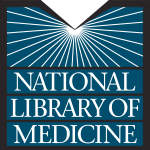- Industri: Library & information science
- Number of terms: 152252
- Number of blossaries: 0
- Company Profile:
The National Library of Medicine (NLM), on the campus of the National Institutes of Health in Bethesda, Maryland, is the world's largest medical library. The Library collects materials and provides information and research services in all areas of biomedicine and health care.
1) One gene interferes with or prevents the expression of another gene located at a different locus.
2) Epistasis is a circumstance where the expression of one gene is affected by the expression of one or more independently inherited genes. For example, if the expression of gene #2 depends on the expression of gene #1, but gene #1 becomes inactive, then the expression of gene #2 will not occur. In this example, gene #1 is said to be epistatic to gene #2.
Industry:Medical
A system of interconnected vesicular and lamellar cytoplasmic membranes that functions especially in the transport of materials within the cell and that is studded with ribosomes in some places.
Industry:Medical
1) Of a solid: capable of recovering size and shape after deformation.
2) Of a liquid: capable of resisting compression.
3) Of a gas: capable of indefinite expansion.
4) Capable of being easily stretched or expanded and resuming former shape.
Industry:Medical
1) Growing from or on the outside (as in exogenous spores).
2) Caused by factors (as food or a traumatic factor) or an agent (as a disease-producing organism) from outside the organism or system (as in exogenous obesity, exogenous psychic depression).
3) Introduced from or produced outside the organism or system; specifically: not synthesized within the organism or system.
Industry:Medical
1: Occurring in an abnormal position (an ectopic kidney). 2: Originating in an area of the heart other than the sinoatrial node (ectopic beats); also: initiating ectopic heartbeats (an ectopic pacemaker).
Industry:Medical
Recording of electric potentials in the retina after stimulation by light.
Industry:Medical
1) Disorders of speech articulation caused by imperfect coordination of pharynx, larynx, tongue, or face muscles. This may result from cranial nerve diseases, neuromuscular diseases, cerebellar diseases, basal ganglia diseases, brain stem diseases, or diseases of the corticobulbar tracts. The cortical language centers are intact in this condition.
2) Articulation disorder resulting from central nervous system disease, especially brain damage.
3) Difficulty in articulating words due to disease of the central nervous system.
Industry:Medical
A hard thin translucent layer of calcified substance which envelops and protects the dentin of the crown of the tooth. It is the hardest substance in the body and is almost entirely composed of calcium salts. Under the microscope, it is composed of thin rods (enamel prisms) held together by cementing substance, and surrounded by an enamel sheath.
Industry:Medical
Abnormal redness of the skin due to capillary congestion (as in inflammation. )
Industry:Medical
